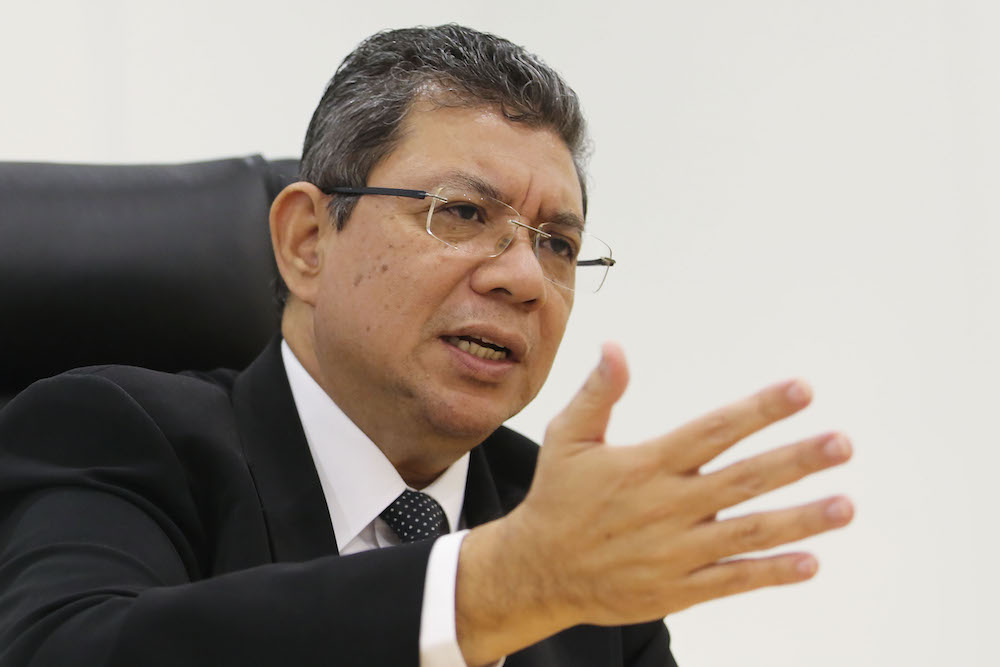SINGAPORE, Nov 14 — Putrajaya brought up the issue of advanced economies’ refusal to cut tariffs against Malaysia at the 2nd Regional Comprehensive Economic Partnership (RCEP) Summit today during the 33rd Asean Summit here.
Foreign Affairs Minister Datuk Saifuddin Abdullah said that part of Prime Minister Tun Dr Mahathir Mohamad’s intervention at the summit was to highlight that Malaysia’s move to remove trade barriers had gone unreciprocated.
“While countries like Malaysia are expected to eliminate or reduce our tariffs to provide greater market access to others, this is not reciprocated by some advanced countries in the current negotiations,” he tweeted on his account.
PM @chedetofficial 's intervention at d 2nd RCEP Summit: "While countries like Malaysia is expected to eliminate or reduce our tariffs to provide greater market access to others, this is not reciprocated by some advanced countries in d current negotiations".
— Saifuddin Abdullah (@saifuddinabd) November 14, 2018
Saifuddin confirmed to Malay Mail that Dr Mahathir did not attend the summit himself, and he presented the argument on behalf of the prime minister.
While opening the summit, Singapore Prime Minister Lee Hsien Loong said negotiations on the RCEP are set to conclude by 2019 after more than six years.
Lee said seven chapters of the RCEP have been concluded, and market access negotiations have advanced substantially.
“We are now at the final stage of negotiations,” Lee said.
This comes as Dr Mahathir told the Asean Business and Investment Summit yesterday that Asean must not simply accept any trade deal that may be unfair to the region, and must continue to expand its market by engaging in free trade agreements with its key partners, such as the RCEP.
Dr Mahathir also said the finalisation of RCEP must take into account the different levels of the 10 Asean members.
The RCEP is a proposed free trade agreement between the 10 Asean members and the six Asia-Pacific states with which they have existing free trade agreements: Australia, China, India, Japan, South Korea and New Zealand.
When realised, RCEP would represent half of the global population and over 40 per cent of global trade.
Covering half the world’s population, the RCEP is billed as an antidote to Donald Trump’s “America First” agenda, which has seen tariffs imposed on almost half of all Chinese imports to the United States — and retaliatory levies by Beijing.



















